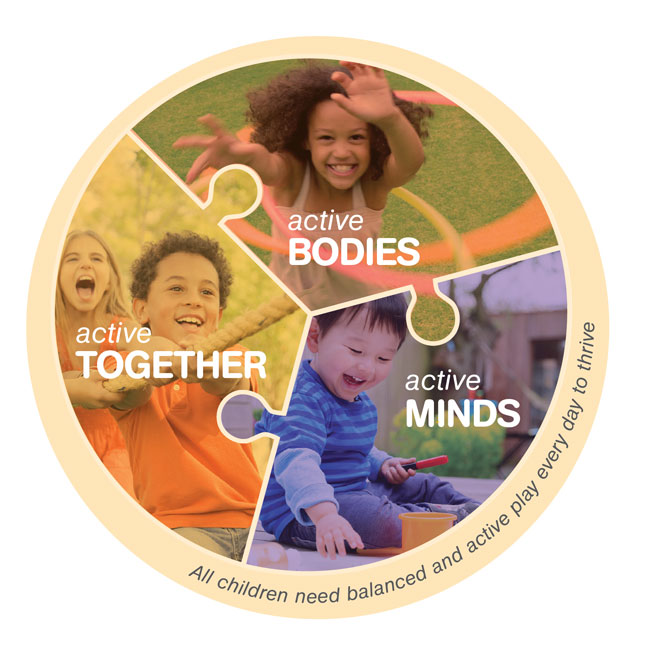Every Kid Needs Active and Balanced Play Every Day to Thrive

Active Minds
Play activities help children create, explore, solve, and imagine—which helps their brain develop, builds important creative thinking and problem-solving skills, and contributes to emotional well-being. For example:
- Play encourages recombining ideas, making associations, and transforming objects, helping children become more creative.
- Play also may increase children’s capacity to store new information, as their cognitive capacity is enhanced when they are offered drastic changes in activity—switching from English to math is not enough.
- Play is associated with children developing the appreciation that problems may have numerous approaches and multiple solutions.
- Small children use imaginative play and fantasy to take on their fears and create or explore a world where they can have the control they may lack in their lives. It also allows them to practice adult roles. Through this imaginative play, children develop new competencies that lead to enhanced confidence and the resilience they need to address future challenges.
Active Bodies
- Physical play contributes to the development of gross motor skills, control, coordination, and strength.
- Healthy lifestyle habits formed through play, including physical activity, can lower the risk of becoming obese and the related risks of high blood pressure and high cholesterol, Type 2 diabetes, breathing problems, joint problems, and social and psychological problems.
- Analysis based on data from the National Survey of Children’s Health (2007) indicate that children without neighborhood access to parks or playgrounds are 26 percent more likely to be obese and 23 percent more likely to be overweight than children with neighborhood access to parks or playgrounds.
Active Together
Play brings friends together and families together, teaching kids how to interact as part of a group, resolving conflicts, and strengthening bonds.
- Play helps kids forge strong connections with one another, through learning how to share, negotiate, resolve conflicts, and develop self-advocacy skills.
- Research with Foresters™, conducted by Harris Interactive, found that the more time a family spends together at a community playground, the greater its sense of family well-being in terms of strong relationships, quality health, and time spent together.